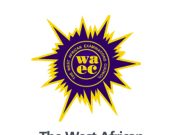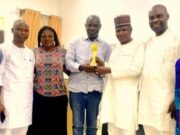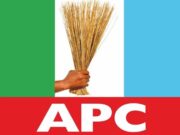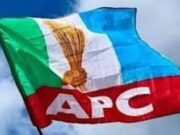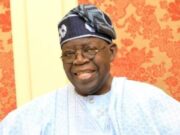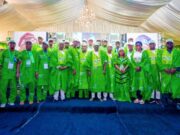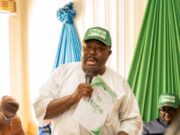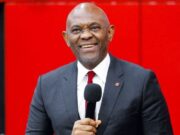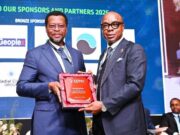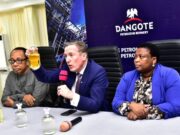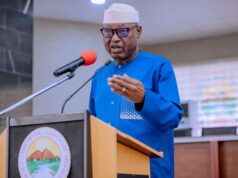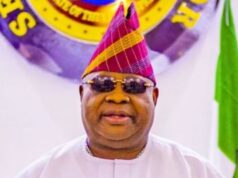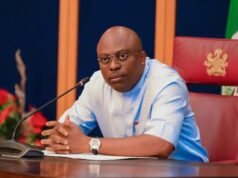The Minister Of Transportation, Sen. Said Ahmed Alkali has called on Chinese and other foreign investors to invest in Nigeria’s railway infrastructure.
The Minister said there are investment opportunities in power supply schemes, integrated security solutions, and real-time monitoring systems to secure the corridors and ensure reliable service delivery.
Speaking at the 16th International Infrastructure Investment and Construction Forum (IIICF) in Macao, China, Alkali said he looks forward to a collaboration that builds not just railways but bridges of opportunity, peace, and shared progress.
He said Nigeria has embraced sustainability in its railway development strategy by retrofitting locomotives to accommodate hybrid propulsion systems powered by Compressed Natural Gas (CNG).
The minister said: “Infrastructure is not just about tracks and trains. For our railway system to function optimally, there is a need for investments in dedicated power supply schemes, integrated security solutions, and real-time monitoring systems to secure the corridors and ensure reliable service delivery.
These are areas ripe for private-sector participation and public-private partnerships.
“China has been a trusted friend and partner, and we look forward to a deeper collaboration that builds not just railways but bridges of opportunity, peace, and shared progress. I invite global investors, financiers, and infrastructure developers to consider Nigeria not merely as a market but as a strategic hub for African regional connectivity. We believe in partnerships that empower and transform.
“Together, through enhanced connectivity and win-win cooperation, we can build a future where our railways and other modes of land transport carry not just goods and people, but also the promise of a prosperous tomorrow.”
The Minister also said Nigeria and China have embarked on transformational infrastructure through deliberate collaboration anchored in mutual respect and shared interests.
He said the projects are enhancing regional integration, unlocking economic potential, and delivering tangible benefits to our people.
He said: “A prime example of this partnership is the Lagos–Kano Standard Gauge Railway Project, a flagship initiative under Nigeria’s railway modernization programme undertaken by the China Civil Engineering Construction Company (CCECC). This ambitious corridor has been segmented for implementation, and I am pleased to report remarkable milestones:
“The Abuja–Kaduna Railway Line, the first completed segment, has been operational since 2016, becoming a vital link for passengers and cargo in Northern Nigeria.
The Lagos–Ibadan Railway Line, completed and inaugurated in 2021, is now enhancing commercial activity between Nigeria’s largest commercial city and its hinterland.
Construction is currently ongoing on the Kaduna–Kano Railway Line, with notable progress being recorded despite funding challenges.
“However, for the full benefits of this transformative corridor to be realized, it is imperative to complete the remaining segment; Ibadan–Minna–Abuja. This strategic link is the last piece in the Lagos–Kano corridor and will, upon completion, enhance inter-regional trade, reduce logistics costs, and improve trans-African connectivity.
“We, therefore, call on our Chinese partners to once again lend their support, both financial and technical, to bring this critical segment to life…As we look to the future, Nigeria remains open and eager to attract strategic partners to develop additional corridors for standard gauge railways”.
The Minister said several feasibility studies have been completed by the Ministry of Transportation and present investment-ready opportunities include Port Harcourt–Maiduguri Railway with Branch Lines (2,163km), Aba–Owerri–Nnewi–Onitsha–Awka–Enugu–Abakaliki Corridor (254km), Kano–Nguru–Gashua–Damaturu–Gamboru-Ngala Line (740km), Lagos–Ibadan–Abuja High-Speed Rail Line (605km), Illela–Sokoto–Jega–Yauri–Makera–Minna Line (408km), Zaria–Funtua–Gasua–Kaura Namoda–Sokoto–Illela–Birnin Koni Corridor (520km), and Calabar–Ikom–Obudu–Ogoja–Wukari–Yola–Maiduguri route.
He added that there are concession opportunities for existing narrow-gauge systems, such as the Lagos–Kano Western line.
Alkali stated that the corridors span critical mineral, agricultural, and commercial zones, offering tremendous return on investment for any committed partner.”
Credit: thenationonlineng.net










